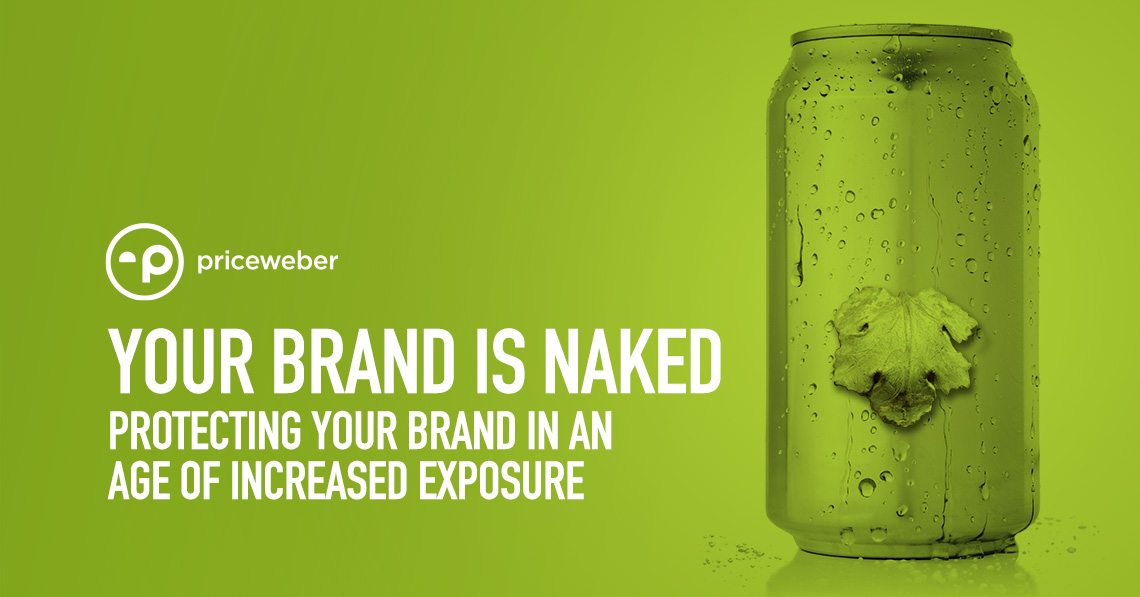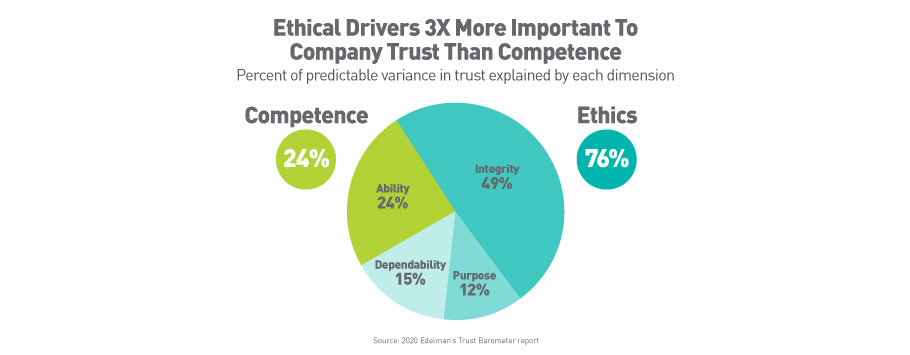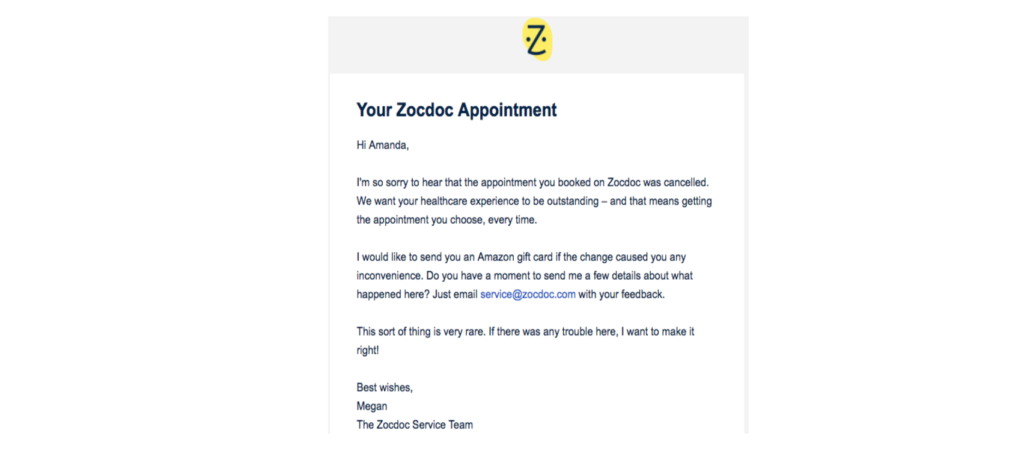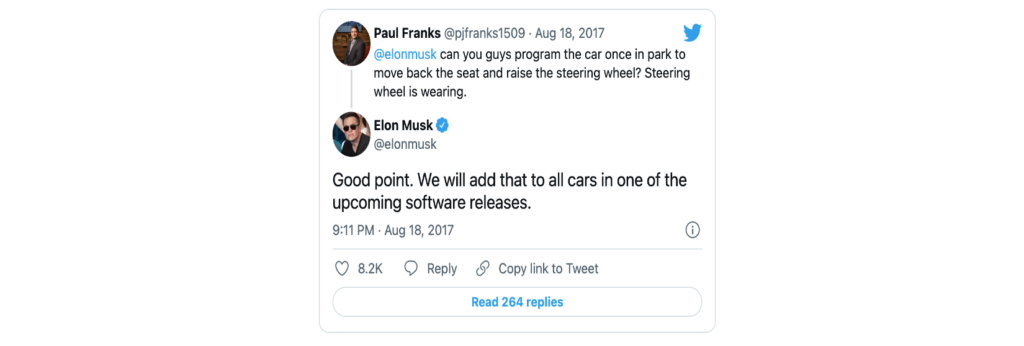Protecting Your Brand in an Age of Increased Exposure
Your brand is the aggregate of what you say it is and what regular people on the street, or probably more correctly, the internet, say it is. In fact, there has never been a time when consumers had more power over what a brand “means” than right now. Everything about a company and its brands can be scrutinized and commented on these days. Beyond a product’s execution against its functional claims or qualities, everything from supply chain ethics to senior-management retreat activities to the diverse hiring practices of your company can be made public and affect your brand’s image. In today’s Plain Talk article, we’ll discuss your increased brand exposure and why brand honesty is more important than ever.
Once upon a time…
In a time not terribly long ago, a company could create and maintain its brand with a core group of marketers. Besides defining the brand, their job was to ensure that the brand was projected consistently. This group managed the brand standard and projected a consistent brand experience. The “big” touches were comparatively few, and thus they were very manageable by this core group. While there was an expectation that a product or service needed to live up to its brand promise, the brand was still mostly internally defined and projected via TV, radio, print and packaging. Brand complaints were mostly relegated to letters and phone calls to the Better Business Bureau.
Then in 1995, a crazy little upstart online bookseller called Amazon started allowing customers to post reviews of their purchases. This democratization of public opinion quickly spread to eBay and then to specialty review sites like ReviewItAll.com. Then in 2001, “big” websites like YellowPages.com and CitySearch.com began to allow the public to post reviews online, leading to an explosion of public opinion online and ultimately to social media and a thoroughly empowered consumer!
Suddenly, any consumer touchpoint becomes a “big” touch, as United Airlines learned in 2017 when a social media video surfaced of a paying passenger being violently dragged off one of their planes as a result of them overselling seats. The viral video was viewed over 5,000,000 times on YouTube, but that’s just the tip of the iceberg, as the video was posted on multiple social media platforms and was picked up by many news channels around the world. It has been viewed on Al Jazeera’s website alone another 136,000 times. The event has its own Wikipedia page. Think about that. How many times have you flown on a United Airlines flight and not been unjustly dragged off a plane? How many of the millions of United tickets sold that didn’t end in a passenger being unjustly dragged off a plane ended with their own Wikipedia page? That’s right … none!
Since then, every brand touch has the possibility of being big, and behavior befitting your brand has become the responsibility of every employee. Your worst product, worst employee and worst customer experience can become big tomorrow, and your brand must be able to absorb that body blow and continue the fight. For this reason, branding today must be practiced and understood by every employee as the soul of your company.
Beyond increased exposure means increased expectations
Edelman’s Trust Barometer found ethical drivers are three times as important as competence to consumers when determining their trust in a company. Our 2019 article on Corporate Social Responsibility discusses how this is particularly true with younger consumers.
Today brand stewardship requires honest listening, honest responses, honest brand adjustments, and honest companywide brand training and authenticity:
1. Honest brand relationships require listening
The most important thing a brand steward can do is listen.
- Social media – There is rightfully a lot of emphasis on social listening today, and it is important that your company be involved. There are tools that make social listening easy, but that’s not the only listening/monitoring you need to do.
- Glassdoor and Indeed reviews – If your Glassdoor review is a 3.1 and contains dozens of comments trashing your company for how you treat employees, that isn’t just hurting your hiring efforts. It’s also hurting your brand. Imagine looking for a day care provider for your elderly mother only to find dozens of comments about how poorly a provider treats its employees and how dissatisfied they are!
But it goes deeper than that. Accenture’s Strategy Global Consumer Pulse Research found 65 percent of consumers say they are attracted to organizations that treat their employees well, and 74 percent of consumers say they crave greater transparency in how companies ensure safe working conditions.
- Product/company reviews – Beyond social media comments, there are reviews on Facebook, Google, Foursquare, Amazon, eBay, Groupon, CitySearch and more! These can all be managed and even solicited via the proper implementation of a reputation management platform like Birdeye. A future article will address the importance and proper implementation of a reputation management platform.
- Call centers – If your company runs a call center to process leads or provide customer support, someone with brand leadership responsibility needs to listen to these. Imagine if marketing at a large cable or cellphone company actually listened to the calls of their current customers calling in to find out that despite being mailed new customer promotions, they aren’t eligible as existing customers! Maybe they’d actually remove existing customers from their new customer promotions database!
2. Honest brands require honesty and action
While it’s important to answer reviews and social media messages, it’s more important to own your mistakes and right your wrongs. Not all wrongs are on the scale of Facebook’s major breach of trust. In fact, a lot of goodwill can be gained from apologizing and rectifying mistakes. When done right, how you deal with mistakes can even help you build brand trust. For example, when the doctor’s appointment “Amanda” booked with Zocdoc (below) was canceled, the company apologized and sent her an Amazon gift card for her inconvenience. That not only let Amanda know she was important, but everyone else who has since seen it (including you) also noticed that Zocdoc considers their patients important!
3. Honest brands are principled but not rigid
Listening doesn’t just tell you what not to do. It can also help you decide what to do! In 2000 when White Rock Distilleries launched Cabana Boy Rum, they envisioned the product targeting the growing market of female drinkers 21 to 35. Much to their surprise, the homosexual male market fell in love with the brand name and bottle design and immediately embraced the product as if it had been created for the LGBTQ+ community. Recognizing the happy accident, the brand listened and immediately adopted its unintended target audience and shifted its marketing accordingly!
While complete target market overhauls are rare, product improvements are not. In 2017, customer Paul Franks suggested to Elon Musk via Twitter that when you put the car in park, the seat should move back and the steering wheel lift to accommodate exiting and entering the car. The suggestion was added to the next software update. I wonder what percentage of other car manufacturers’ customers can name their brand’s CEO; much less feel they have a dialogue with them?
There are also countless brand extensions and unintended uses that have come from listening to customers.
In 2018, McDonald’s UK, based on repeated customer requests, moved to paper straws. They recognized the consumers in the transition and continue to recognize them today. In fact, in 2021, McDonald’s UK again heeded the consumer call by redesigning its McFlurry packaging, which had inadvertently become a trap for hungry hedgehogs.
4. Honest brands anchor to substance
To say the world we live in is dynamic, fast-paced, and at times flat-out a little crazy is an understatement. Over the past five years, some really important social justice causes have come to the forefront of social media and public discussion. Good intentions have led brands to try to stay abreast with these social issues. While brands are experiencing growing pressure from customers to lead social responsibility efforts, brands still must remain authentic. Consumers are seeing through the hollow efforts to change your logo to a rainbow or spew off a Martin Luther King, Jr. quote when the calendar tells you should. In fact, a recent large study found that 71% of people have little faith that brands will deliver on their brand promises as they relate to consumer social responsibility (CSR) and that we are entering the “Age of Cynicism.”
What this means moving forward is that when your brand waves the latest CSR flag, be certain that you can cement it to your core ideally with something you’ve done or a measurable commitment to something you’re doing. For example, when Cummins Inc. posts a pride logo, it can take pride in the fact that it has been offering employees domestic partner benefits since 2000.
5. Embrace your honest brand
While your company defines what your brand aspires to be, your customers ultimately determine what your brand is! It’s important that the entire organization has an understanding of your brand – both its reach and its limitations. Again, every brand touch in this day and age has the potential of becoming a significant touch, so it’s crucial that every employee understands how important their role is and that they are empowered and encouraged to correct the little wrongs.
If you have honest questions … we can have an honest conversation!
Of course, this article just scratches the surface on this topic. If you feel you have questions or want to talk more about the topic, please give us a call at 502-499-4029 or drop us a note here, and we’ll be happy to help.





